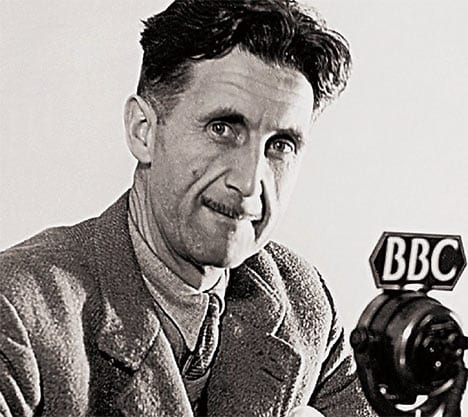George Orwell is better known for prose than poetry but the essay Politics and the English Language has relevance for poets. For Orwell, political prose was designed deceive or ‘spin’ the truth. In a challenge to the spreading habit of convoluted writing this essay calls for a return to plain English with some sound advice for poets. Never use a metaphor, simile, or other figure of speech which you are used to seeing in print. Never use a long word where a short one will do. If possible cut unnecessary words and never use the passive where you can use the active. All standard guidance frequently found in DIY poetry books. A worn out metaphor or cliché suggests lack of original thinking whereas a new way of showing (not telling) can be enough to create a poem. Trimming a poem is also an essential art. Leave a new poem for a week and the superfluous words will make themselves known.
The ideas were later developed into Newspeak in 1984; a book whose impact must depend on when it was read. Reading 1983 in 2013 is less impressive than reading it prior to the development of digital surveillance. The internet and cctv has made the predicted future of Big Brother a frightening reality while political rhetoric is more widespread than ever. Orwell claimed language should be “an instrument for expressing and not for concealing thought” while those writers dealing in lies would inevitably become corrupted.
The power of poetry is resonance. Telling ‘it as it is’ or grounding fantasy in universal experience enables the reader to recognise universal truths. In the words of Orwell, now to be remembered annually on 21 January “Orwell Day”, anything other than dealing with truths allows writers not only to cheat themselves but their readers.
Politics and the English Language is available from http://theorwellprize.co.uk/george-orwell/by-orwell/essays-and-other-works/politics-and-the-english-language/

